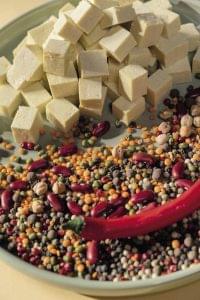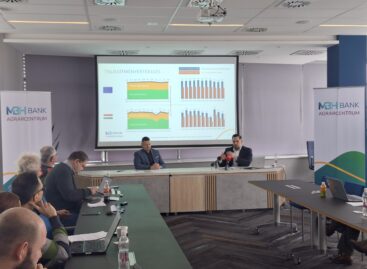Magazine: Sales trends of plant-based foods in the European market

Guest writer:
Réka Szöllősi
Independent food policy analyst
elelmiszervilag.hu
The European Union is focusing more and more on making the continent’s food system sustainable. One of the main directions in these efforts is increasing the proportion of plant-based foods in the diets of Europeans. Parallel to this, the tension between the producers of animal-based and plant-based foods is on the rise, and the same is true for their trade organisations. In spite of this there is a boom in the number of plant-based foods available to consumers, and category sales are growing by double-digit numbers in the developed world. Within the framework of an EU project called Smart Protein, Nielsen did a survey using data from supermarket sales in 11 European countries, to find out how plant-based food sales developed between 2018 and 2020.
What do the numbers say?
Sales grew considerably in all of the participating countries and the average growth was 49 percent. Total sales in the category amounted to EUR 2.4 billion in 2018 and EUR 3.6 billion in 2020. Plant-based food sales produced the biggest jump in Germany and the United Kingdom. In most countries the top plant-based foods are actually drinks – this category underwent a 36-percent sales growth in the 2-year period and was worth EUR 1.6 billion in 2020. Sales of cheese alternatives were up 112 percent and they were sold in the value of EUR 60 million in 2020. In the same year plant-based yogurt sales were at EUR 405 million.

Sales of plant-based drinks reached the highest in Germany and Spain, and Germany took the lead in terms of market growth
Discounters are the leaders
In Austria plant-based food sales augmented by 57 percent in the examined period, and the boom was the biggest in discount supermarkets. Vegan meat alternative sales increased the most, by 82 percent. In Poland plant-based drink sales rose by 62 percent and Romania produced a double-digit sales growth in both the plant-based drink and meat substitute segments. The study has found that category sales grew faster than the average in the discounter channel.

On account of the significant growth potential, ever mor companies give the green light to the development of plant-based alternatives
Conclusions
One of the main conclusions that can be drawn from the study is that plant-based food sales are rapidly growing in Europe, and thanks to this growth potential it is rather likely that more and more companies will start innovating in the category. It is also probable that soon, when large-scale production starts, the currently relatively high consumer prices will reduce. As for Hungary, we can say that the product selection is growing in the category, and in spite of plant-based foods being expensive, there is increasing consumer and manufacturer interest in them. //
Related news
KSH: industrial production expanded by 1.8 percent in December compared to the same period of the previous year and by 0.9 percent compared to the previous month
🎧 Hallgasd a cikket: Lejátszás Szünet Folytatás Leállítás Nyelv: Auto…
Read more >








